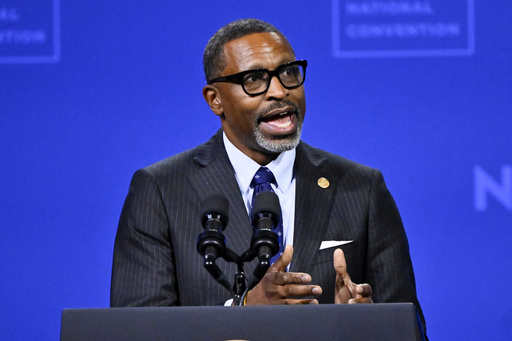WASHINGTON — The NAACP is encouraging Black Americans to support companies that remain committed to diversity, equity, and inclusion (DEI) initiatives, despite facing pressure from conservative groups. The organization has released a list identifying brands that have upheld their commitments to DEI, as well as those that have backtracked.
This initiative comes in recognition of DEI programs as essential for the social and economic progress of Black Americans, whose consumer spending is projected to reach nearly $2 trillion by 2030, according to the McKinsey Institute for Black Economic Mobility. NAACP President Derrick Johnson emphasized the importance of diversity, stating, “Diversity is better for the bottom line” and cautioned that businesses that ignore the multicultural aspect of the economy risk being left behind.
Keisha Bross, an economic strategist at the NAACP, clarified that they are not advocating for a boycott, but rather inviting consumers to invest in brands that reflect their values. The advisory encourages individuals from all backgrounds to participate in this consumer effort.
The NAACP is currently engaging with various corporations listed in the advisory that have reversed their commitments to DEI. This includes major companies like Lowe’s, Target, Walmart, Amazon, Meta, McDonald’s, and Tractor Supply. The NAACP plans to adjust its advisory as these companies either retract or reaffirm their commitment to DEI policies.
In contrast, companies such as Costco, Apple, Ben & Jerry’s, Delta Airlines, e.l.f. Cosmetics, and JPMorgan Chase have been recognized for maintaining their DEI commitments. This initiative occurs alongside a national trend where corporations and government entities are reevaluating their DEI policies due to pressure from conservative factions.
Former President Donald Trump notably signed an executive order shortly after assuming office that called for federal agencies to halt what he termed “illegal preferences and discrimination” and encouraged the private sector to eliminate DEI initiatives.
DEI encompasses a range of programs aimed at ensuring fair treatment and impartial hiring, fostering cooperation among diverse groups. While the specifics of these policies differ across organizations, they typically involve anti-discrimination measures and training designed to promote inclusivity. Some corporations appoint DEI officers tasked with implementing these strategies.
The NAACP’s advisory scrutinizes which companies are regressing on their commitments to DEI, highlighting actions like the elimination of diversity officer roles, the cessation of hiring aimed at increasing staff diversity, and reduced financial support for Black communities, including Historically Black Colleges and Universities.
Johnson stated his goal is to equip Black communities with the tools they need “as we make difficult decisions on where to spend our hard-earned money,” asserting that corporations must be prepared to uphold ethical standards in order to gain their business.
The legal landscape surrounding Trump’s directives is complex, with various stakeholders challenging the measures. Notably, a lawsuit was filed against the Trump administration by a coalition including the mayor of Baltimore and a professors’ association, contending that the executive orders violate civil rights laws.
This ongoing legal discourse extends to the private sector, as the Federal Communications Commission has initiated a lawsuit against Comcast regarding its DEI policies. Similarly, Missouri has filed a suit against Starbucks over its DEI practices. Numerous major corporations, including Apple, Berkshire Hathaway, Coca-Cola, IBM, Mastercard, and Pepsico, are also facing shareholder resolutions that challenge their approaches to DEI.
